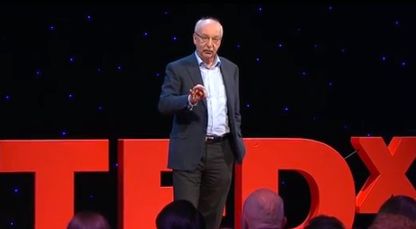What are the risks associated with electronic patient records, medical diagnosis by artificial intelligence and the use of health apps? To what extent can participation in cancer screening programmes prevent dying from cancer? These and similar questions are addressed by the Harding Center for Risk Literacy. We research, develop, and publish methods and tools that enable informed, risk literate, and efficient decisions in an increasingly digitalized world. We support experts and organizations to communicate facts accurately, transparently, and comprehensibly and contribute towards the ideal of a democratic society that knows how to calculate risks and live with uncertainty.

Decision-making under Uncertainty

We develop empowerment strategies for critical interaction with and control of algorithmic decision environments
Risk and Evidence Communication
The research group Risk and Evidence Communication develops strategies to communicate about and better understand scientific evidence.
Risk Literate?
Are you risk literate? Check your knowledge about risks and uncertainties of everyday life here!
Quick Risk Test
This test is targeted at medical students and medical professionals:
Quick Links
Bad Statistic of the Month
The Bad Statistic of the Month (“Unstatistik des Monats”, only available in German) has been published monthly since 2012. Every month, the authors question recently published statistics and their interpretations. The underlying aim is to help the public deal with data and facts more rationally, interpret numerical representations of reality correctly, and describe an increasingly complex world more adequately.
Call for a Study for Health Educators
You inform about health-related topics (e.g. vaccinations) and want to contribute to a more target group-oriented care? We are studying the knowledge and behaviour of citizens with different cultural, linguistic and social backgrounds about COVID-19 and influenza vaccination.

